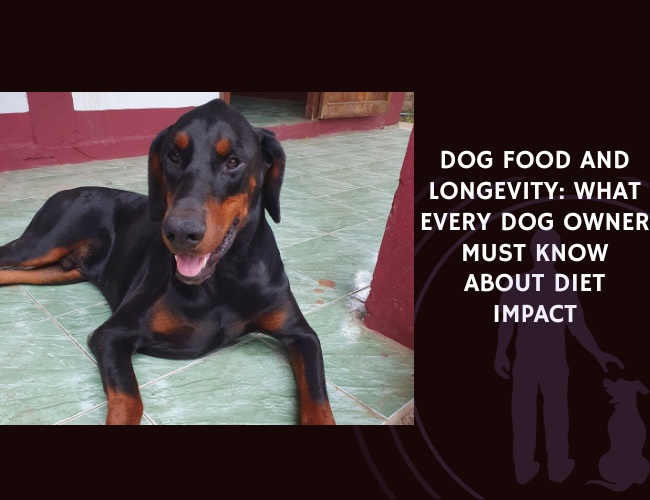Understanding Basic Canine Nutrition
Essential Nutrients Required for Dogs
A balanced diet is the foundation of a healthy dog’s life. It consists of essential nutrients, which include proteins, fats, carbohydrates, vitamins, and minerals. These nutrients are necessary for maintaining optimal health and preventing deficiencies.
Proteins
Proteins are indispensable for muscle development, repair, and overall growth in dogs. They are made up of amino acids, some of which are essential and must be obtained from the diet. High-quality proteins support strong muscles, a robust immune system, and overall vitality of your pet.
Fats
Fats provide a concentrated source of energy and are crucial for various bodily functions. Essential fatty acids, particularly omega-3 and omega-6, play an integral role in brain function, skin health, and maintaining a shiny coat. They help reduce inflammation and support cell membrane integrity.
Carbohydrates
Carbohydrates are the primary energy source for dogs, also contributing to fiber intake, which supports gut health. Choosing low-glycemic carbohydrates can help maintain stable blood sugar levels, which is especially important for older dogs. Consistent energy levels are essential for everyday activity and long-term health.
Vitamins and Minerals
Vitamins and minerals are vital for a range of metabolic processes and maintaining a healthy immune system. For example, antioxidants like vitamins C and E help reduce oxidative stress, while calcium and phosphorus are critical for bone health. A well-rounded diet should include a variety of vitamins and minerals to support overall well-being.
Water
Adequate hydration is crucial for a dog’s health. Water supports digestion, nutrient absorption, and kidney function. Ensuring your dog has constant access to clean, fresh water is imperative for their overall health and vitality.
How Proper Nutrition Directly Influences Dog Lifespan and Health
There is a clear connection between proper nutrition and a dog’s lifespan. A well-balanced diet not only supports day-to-day health but also extends a dog’s life by preventing age-related issues and chronic conditions. Research suggests that dogs receiving adequate nutrients exhibit enhanced immune function, better quality of life, and a greater ability to ward off diseases.
How Diet Impacts the Lifespan of Dogs
Understanding how diet impacts the lifespan of dogs is crucial for any pet owner aiming to provide the best care for their furry companions. A dog’s diet directly influences its overall health, vitality, and longevity. By ensuring a balanced intake of essential nutrients such as proteins, fats, carbohydrates, vitamins, and minerals, dog owners can significantly enhance their pet’s quality of life and potentially extend their lifespan. Proper nutrition helps maintain a healthy weight, supports immune function, and reduces the risk of chronic diseases, all of which are vital for a long and healthy life.
Research has shown that feeding dogs a diet rich in high-quality proteins and essential fatty acids can improve muscle maintenance and support joint health, particularly in aging dogs. Additionally, incorporating low-glycemic carbohydrates into their diet helps maintain stable blood sugar levels, reducing the risk of diabetes and other metabolic disorders. These dietary choices not only promote day-to-day well-being but also play a critical role in preventing age-related health issues, thereby extending a dog’s lifespan.
Moreover, the impact of diet on a dog’s lifespan is further highlighted by the importance of hydration and micronutrient balance. Adequate water intake is essential for kidney function and nutrient absorption, while vitamins and minerals support various bodily functions and protect against oxidative stress. By focusing on these key dietary components, dog owners can ensure their pets receive the necessary nutrients to thrive throughout their lives, ultimately contributing to a longer, healthier existence.
Effects of Diet Restriction on Life Span and Age-Related Changes in Dogs
Diet restriction has emerged as a significant factor in extending the lifespan of dogs, with numerous studies highlighting its benefits. By reducing calorie intake by approximately 20% to 25%, dogs can experience a delay in the onset of age-related diseases and an overall increase in longevity. This approach not only helps maintain a lean body condition but also reduces the risk of obesity-related health issues such as diabetes, heart disease, and joint problems. The effects of diet restriction are profound, as it promotes healthier metabolic functions and enhances the dog’s quality of life.
Moreover, diet restriction plays a crucial role in mitigating age-related changes in dogs. As dogs age, their metabolism slows down, and they become more susceptible to chronic conditions. A controlled diet helps manage these physiological changes by maintaining optimal body weight and supporting vital organ function. Research indicates that food-restricted dogs tend to have lower serum triglycerides, insulin, and glucose levels, which contribute to better health outcomes as they age. By implementing a diet restriction strategy, dog owners can effectively support their pets’ long-term health and well-being, ensuring they enjoy a longer, healthier life.
Incorporating diet restriction into a dog’s routine requires careful planning and monitoring to ensure nutritional needs are met without overfeeding. It’s essential to consult with a veterinarian to tailor a diet plan that aligns with the dog’s specific health requirements and lifestyle. By understanding the effects of diet restriction on lifespan and age-related changes, pet owners can make informed decisions that significantly impact their furry companions’ longevity and vitality.
The Relationship Between Balanced Diet and Disease Prevention
A balanced diet is essential for disease prevention. Specific dietary components, such as antioxidants and omega-3 fatty acids, can lower the risk of chronic diseases like cancer, kidney disease, and arthritis. Feeding dogs a diet rich in these nutrients helps reduce inflammation and oxidative stress—key factors linked to aging and disease.
A balanced diet can also help manage weight, which is crucial for disease prevention. Obesity in dogs is linked to numerous health issues, including diabetes, heart disease, and joint problems. Maintaining a healthy weight through a well-regulated diet can significantly improve the overall health and lifespan of your pet.
To ensure your dog’s longevity and health, it’s crucial to provide a diet that includes all these essential nutrients in appropriate amounts.
Let’s explore how particular dietary components can aid in extending your dog’s lifespan and contribute to their overall health.

Key Dietary Components for Longevity
High-Quality Proteins for Muscle Maintenance and Immune Support
Proteins are crucial for dogs at every life stage. They provide the necessary building blocks, called amino acids, for muscle maintenance and repair. High-quality, easily digestible proteins are particularly important as they can be efficiently utilized by the body. Ensuring that your dog’s diet includes substantial amounts of high-quality proteins can support lean muscle mass and prevent muscle wasting, especially in aging dogs.
Proteins also play a significant role in maintaining a robust immune system. By supporting the production of antibodies, these proteins help protect dogs from diseases and infections. Dogs that receive sufficient high-quality proteins have a better chance of thriving and staying healthy as they age.
Essential Fatty Acids: Omega-3 and Omega-6
Essential fatty acids (EFAs), such as omega-3 and omega-6, are indispensable for a dog’s health. These fats cannot be synthesized by the dog’s body and must be obtained through diet. Omega-3 fatty acids, found in fish oils and flaxseed, are crucial for brain health, reducing inflammation, and supporting heart function. Studies indicate that omega-3-rich diets can improve cardiac and joint health in dogs, contributing to increased longevity.
On the other hand, omega-6 fatty acids, present in poultry fat and vegetable oils, are vital for maintaining a healthy coat and skin. They help in promoting a glossy coat and preventing dryness or other skin conditions. Balancing these essential fatty acids in your dog’s diet is key to supporting overall health, particularly as your dog ages.
Benefits of Low-Glycemic Carbohydrates
Carbohydrates provide a primary source of energy for dogs. However, not all carbohydrates are created equal. Low-glycemic carbohydrates, such as those found in whole grains, fruits, and vegetables, ensure a slower release of glucose into the bloodstream. This helps maintain steady blood sugar levels, which is particularly important for older dogs or dogs prone to diabetes.
Moreover, fiber from these carbohydrates supports gut health by aiding digestion and promoting a healthy microbiota. Contrary to popular belief, carbohydrates are essential in a balanced diet, but the focus should be on their quality and glycemic index.
Proper Hydration
Water is often overlooked, yet it is an essential component of a dog’s diet. Adequate hydration supports kidney function, helps regulate body temperature, and allows for the proper digestion and absorption of nutrients. Dogs should have constant access to fresh, clean water to prevent dehydration and support overall health.
Maintaining proper hydration is crucial, especially for active dogs, senior dogs, and those with certain health conditions. Ensuring that your dog drinks enough water can prevent urinary tract infections and promote overall well-being.
Understanding these key components of canine nutrition highlights how a balanced diet extends beyond just feeding your dog. By focusing on quality proteins, essential fatty acids, low-glycemic carbohydrates, and ensuring proper hydration, dog owners can significantly influence their pet’s health, longevity, and quality of life.
Life Stage-Specific Dietary Needs
Understanding the specific dietary needs of your dog at different life stages is vital to ensure they stay healthy and live a long, happy life. Puppies, adult dogs, and senior dogs each have unique nutritional requirements that change with age and activity level. Tailoring their diet accordingly can make a significant difference in their well-being.
Nutritional Requirements for Puppies, Adults, and Senior Dogs
Puppies
Puppies require higher protein and fat content in their diet to support their rapid growth and development. Protein is critical for muscle growth, while fat provides essential energy.
- High Protein: Essential for muscle development.
- High Fat: Provides energy.
- Vitamins and Minerals: Critical for bone and immune system development.
- Hydration: Important for every life stage, particularly for active puppies.
Adult Dogs
Adult dogs need a balanced diet that focuses on maintenance and preventing excess weight gain. Their diet should support their daily energy levels and maintain optimal health.
- Balanced Protein and Fat: Helps maintain muscle without excess weight.
- Carbohydrates: Provides steady energy.
- Vitamins and Minerals: Important for maintaining overall health.
- Hydration: Maintaining proper kidney function and overall health.
Senior Dogs
Senior dogs have different requirements to help combat age-related issues. They need fewer calories but more specific nutrients to support joints and overall health.
- Adjusted Calorie Levels: To prevent obesity and related issues.
- Joint-Supporting Nutrients: Such as glucosamine and chondroitin.
- Antioxidants: In vitamins like C and E to combat oxidative stress.
- Hydration: Essential for kidney health and to prevent dehydration.

How Dietary Needs Change with Age and Activity Level
As dogs age, their metabolism slows, and their physical activity might decrease. Therefore, dietary adjustments become necessary to prevent issues like obesity.
- Puppies: Require more calories to support their growth and high energy levels.
- Adults: Need a balanced calorie intake to avoid excess weight while supporting their daily activities.
- Seniors: Require fewer calories but more specialized nutrients.
Tailoring Portions and Nutrients for Different Life Stages
To ensure your dog is receiving the right nutrients at each stage, portion control is key:
- Portion Sizes: Adjust according to the level of activity and age.
- Nutritional Focus: Puppies need more protein and fat, adults need balanced nutrients, and seniors need reduced calories but nutrient-rich food.
- Consistency: Establishing a consistent feeding schedule supports proper digestion and maintains a healthy weight.
Understanding the unique dietary needs of your dog at different life stages is crucial for their health and longevity. By making adjustments as they age, you can help prevent nutritional deficiencies and keep them healthy throughout their life. The right diet plays a pivotal role in maintaining their health and preventing age-related diseases.
Weight Management and Longevity
Impact of Obesity on Dog Lifespan and Health Conditions
Obesity is not just a human health issue; it significantly impacts our canine friends as well. In fact, it’s one of the top factors leading to a reduced lifespan in dogs. When a dog carries excess weight, it places unnecessary strain on almost every aspect of their body, from joints to internal organs. This can result in several serious health issues such as heart disease, diabetes, and joint problems. Overnutrition — feeding more calories than a dog requires — is the leading cause of canine obesity and must be carefully managed.
Benefits of Calorie-Restricted Diets in Extending Lifespan
Calorie-restricted diets have been shown to extend lifespan and improve the overall health of dogs. Restricting calorie intake moderately but consistently can delay the onset of age-related diseases, such as heart disease and arthritis, and enhance metabolic health. Studies indicate that dogs on calorie-restricted diets exhibit improved vitality and tend to have fewer medical problems. The principle isn’t about drastic reduction but finding the right balance that maintains energy and nutrition without excess.
Strategies for Maintaining Healthy Weight Through Diet
Maintaining a dog’s healthy weight through diet involves several strategic steps:
- Balanced Nutrition: Ensure your dog’s diet includes high-quality ingredients. Focus on proteins that are easily digestible, healthy fats such as omega-3 and omega-6 fatty acids, and low-glycemic carbohydrates that help maintain stable blood sugar levels. Avoid fillers and unnecessary additives that contribute no nutritional value.
- Portion Control: Monitor and adjust food portions based on your dog’s breed, size, age, and activity level. Overfeeding, even with high-quality food, can easily lead to weight gain. Use measuring cups and follow feeding guidelines provided by your veterinarian or the food manufacturer.
- Consistent Feeding Schedule: Establish and stick to a regular feeding schedule. Dogs thrive on routine, and having consistent meal times aids in regulating their metabolism and digestion.
- Healthy Treats: Treats should be given sparingly. Opt for low-calorie, nutritious treats rather than those high in sugars or unhealthy fats. It’s easy to overindulge with treats without realizing the added calories.
- Exercise: Regular physical activity is crucial for weight management. Activities like walking, playing fetch, and agility exercises not only keep the weight in check but also enhance a dog’s mental stimulation and overall fitness.
- Regular Check-ups: Frequent veterinary check-ups help monitor your dog’s weight and overall health. Your vet can provide specific dietary recommendations and adjustments based on your dog’s current health status.
By integrating these strategies into your dog’s daily routine, you can help maintain their weight and ensure they lead a healthier and longer life.
As we move forward, understanding special dietary considerations, such as breed-specific and therapeutic diets, can further enhance how we tailor our dog’s nutrition to meet their unique needs.
Special Dietary Considerations
Breed-Specific Dietary Requirements and Considerations
It’s vital to remember that different breeds have unique dietary needs that influence their overall health and longevity. For instance, large breeds, such as Great Danes and Saint Bernards, may require diets focusing on joint health due to their predisposition to joint issues. These diets often include glucosamine and chondroitin to support joint health and mobility.
On the other hand, small breeds like Chihuahuas and Dachshunds might benefit from diets with higher protein content to manage their fast metabolisms. Additionally, toy breeds often need smaller kibble sizes to accommodate their smaller mouths and reduce the risk of choking.
Medium breeds, such as Spaniels and Bulldogs, typically need a balanced diet that supports a moderate energy level and overall health. Therefore, understanding your dog’s breed-specific needs can help you select the most appropriate diet, contributing significantly to their health and lifespan.
Therapeutic Diets for Managing Specific Health Conditions
Sometimes, dogs may require therapeutic diets to manage specific health conditions. These specialized diets are crafted to address various ailments and improve the quality of life for affected dogs.
- Chronic Kidney Disease: Dogs with chronic kidney disease benefit from diets low in phosphorus and protein but high in omega-3 fatty acids. Such diets help reduce the kidneys’ workload and slow the progression of the disease.
- Food Allergies and Intolerances: Dogs with food allergies might need hypoallergenic diets that avoid common allergens like beef, chicken, and grains. Instead, these diets often use novel protein sources such as venison or duck and carb sources like sweet potatoes.
- Pancreatitis: For dogs suffering from pancreatitis, low-fat diets are essential. These diets help reduce the pancreas’s workload and prevent further inflammation.
Adopting the correct therapeutic diet for your dog’s condition can significantly improve their overall health and potentially extend their lifespan by managing symptoms and preventing complications.
Role of Supplements in Extending Lifespan
Supplements can play an important role in extending your dog’s lifespan, provided they are used correctly and under veterinary supervision. Here are some key supplements to consider:
- Omega-3 Fatty Acids: These are well-known for their anti-inflammatory properties and are beneficial for brain health, joint mobility, and coat quality.
- Glucosamine and Chondroitin: These are commonly used to support joint health, especially in breeds prone to arthritis and other joint issues.
- Antioxidants (Vitamins C and E): These help combat oxidative stress, which is linked to aging and various chronic diseases. Antioxidants can support a long, healthy life by boosting the immune system and protecting cells from damage.
- Probiotics: These are beneficial for digestive health and can help improve nutrient absorption, immune function, and overall gut health.
While supplements can be highly beneficial, it’s crucial to avoid over-supplementation, as too much of certain nutrients can lead to toxicity or imbalance. Always consult with your veterinarian before starting any new supplement regimen to ensure it aligns with your dog’s specific health needs.
Understanding and addressing your dog’s unique dietary needs, whether breed-specific, condition-related, or supplementary, can significantly contribute to their health and longevity.
Moving forward, equipping yourself with the knowledge of practical feeding guidelines will help you select high-quality commercial foods and establish consistent feeding routines, ensuring your dog’s nutritional needs are continually met.
Practical Feeding Guidelines
Choosing High-Quality Commercial Dog Foods
Selecting the right commercial dog food is crucial for your pet’s health and longevity. Look for foods approved by the Association of American Feed Control Officials (AAFCO), which ensures the food meets established nutritional standards. High-quality commercial foods typically list whole proteins like chicken, beef, or fish as the first ingredient. Avoid those with low-quality fillers such as corn syrup and by-products. Reading the ingredient list carefully helps ensure you’re feeding your dog a balanced diet.
Establishing Consistent Feeding Schedules
Maintaining a consistent feeding schedule is key to supporting your dog’s metabolism and digestive health. Feed your dog at the same times each day, and try to evenly space out the meals. Puppies generally need multiple meals throughout the day, while adult dogs can thrive on scheduled meals twice a day. Consistency helps regulate your dog’s appetite and can prevent overeating, which is especially important for weight management.
Avoiding Common Dietary Mistakes and Misconceptions
Dog owners often fall prey to dietary misconceptions. One common mistake is feeding dogs exclusively raw or grain-free diets without proper balance. While these diets can be beneficial for some dogs, they may lead to nutritional deficiencies if not properly managed. Another mistake is overfeeding treats, which can contribute to obesity. Monitor treat intake and make sure it doesn’t exceed 10% of daily caloric intake.
Being vigilant about these potential pitfalls and sticking to a well-researched diet can significantly boost your dog’s health and lifespan.
Next, the article will examine the future of canine nutrition, highlighting ongoing research and developments.

Future of Canine Nutrition
Emerging Research in Gut Microbiota and Canine Longevity
Recent studies have spotlighted the role of gut microbiota in influencing a dog’s overall health and longevity. Gut microbiota refers to the trillions of bacteria and other microorganisms residing in a dog’s gastrointestinal tract. These microorganisms are crucial for digesting food, synthesizing essential vitamins, and bolstering the immune system.
Research indicates that a healthy gut microbiome can enhance nutrient absorption and energy balance. Divergent microbial communities can lead to digestive issues and immune dysfunctions, potentially shortening a dog’s lifespan.
Understanding how gut microbiota interacts with diet can significantly extend canine lifespan. This emerging field of research opens new avenues for customizing diets to promote a healthy gut microbiome, ultimately aiming for a longer, healthier life for dogs.
Advancements in Precision Nutrition and Personalized Diets
Precision nutrition tailors dietary recommendations based on an individual dog’s breed, age, activity level, and health status. This innovative approach ensures that each dog’s unique nutritional needs are met, fostering optimal health and longevity. Recent advancements in this field are transforming how we feed our pets.
Studies are ongoing to create precision diets that are finely tuned to each dog’s specific genetic makeup and lifestyle. Such diets can help prevent common health issues and extend a dog’s lifespan by providing tailored nutrients essential for their well-being. Precision diets are set to be a game-changer in canine nutrition, allowing dog owners to provide the most customized care possible.
New Developments in Understanding Breed-Specific Nutritional Needs
Different dog breeds have unique dietary requirements due to varying metabolic rates, activity levels, and predispositions to certain health conditions. For instance, large breeds like German Shepherds often need diets focusing on joint health, while smaller breeds like Chihuahuas may require higher metabolic support.
Ongoing research aims to define the specific nutritional profiles for various breeds, helping to create breed-specific diets that cater to these distinct needs. Developing such diets can significantly impact the health and longevity of specific breeds. These targeted nutritional strategies ensure that dogs receive appropriate nutrients, supporting their overall health and longevity effectively.
While significant advancements have been made, continuous research and innovation are essential for refining and enhancing canine nutrition practices. This ever-evolving field promises exciting developments that will further improve the health and lifespan of our beloved pets.



